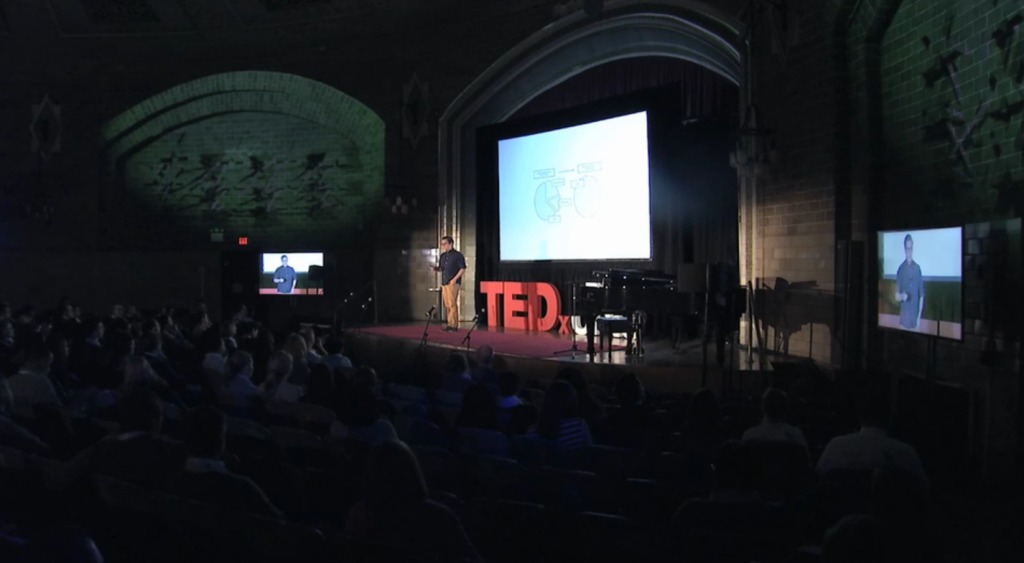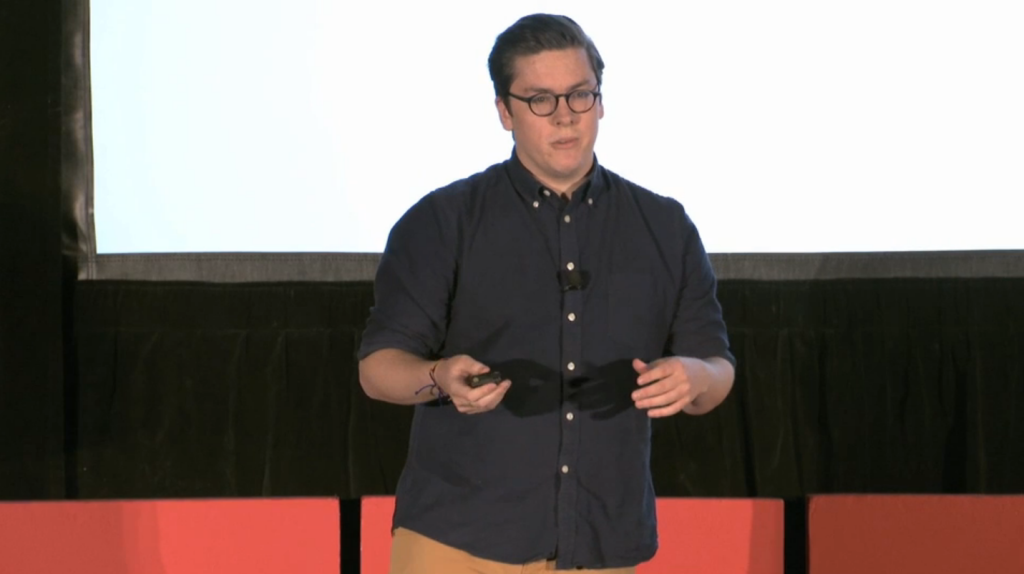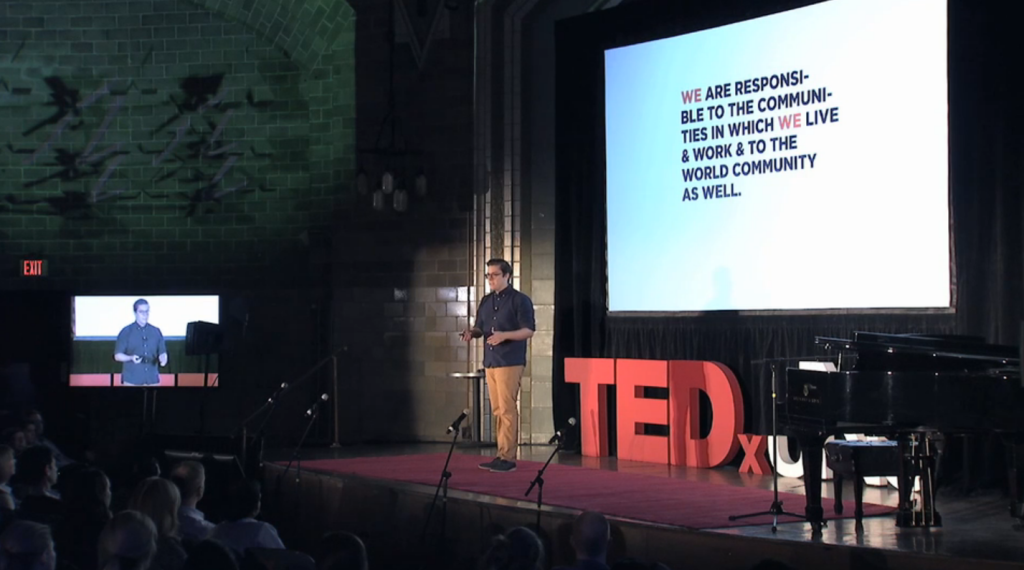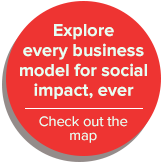The following post is a transcript of a talk by Matthew Manos originally presented in February, 2014 at the Penn Museum for Johnson & Johnson’s TEDx event in Philadelphia. The transcript presented below has been edited since its original performance.
Non-profit organizations are spending billions upon billions of dollars each and every year on fees billed by service-providers and other third party operations like each and every single of us in this room. $8 Billion of that alone is allocated for design and marketing, the industry that I primarily work in… every. single. year. I don’t know about you, but this reality just deeply frustrates me. Imagine what could be accomplished in this world if we created new, more creative, economic systems that allowed organizations to spend less on overhead, and more on impact.
I’m fascinated by the idea that some of the world’s most persistent problems— think hunger… housing… access to water, etc. can actually be solved by just a very simple reallocation of financial resources.
This is where pro-bono work comes in. Pro-bono, short for pro-bono publico literally means “for the good of the public.” It is most commonly attributed to the legal industry as a means of making otherwise expensive services available for free to those who cannot afford it. In more recent years, however, pro-bono has entered many more economies in the service space such as design, marketing, public relations, human resources, and more.
For the past 10 years I have been a pro-bono practitioner.
When I was 16 years old, I took on my first pro-bono project. I found myself in a skatepark in the Silicon Valley. You could find me there on most weekends, but this particular weekend, something spectacular happened. I saw a man in a wheelchair ripping around the park far better than I and everyone else. Intrigued, I rolled a bit closer to the man only to find that he was not alone, but was actually with a group of kids, also in wheelchairs. I came to find out that this man was the founder of a non-profit organization that taught handicapped children how to participate in extreme sports. Incredibly moved, I volunteered to design some stickers to help promote the organization. Lucky for me, the week prior, my godmother sent me a pirated copy of Photoshop. Needless to say, the stickers really were not my best work, but they did have a profound impact on me that would define the next 10 years of my career as a designer.
I’m the founder of a company in Los Angeles called verynice. We are a global design and innovation consultancy that gives over half of its work away for free. So far we have been able to save non-profit organizations a total of over $1,500,000, which has been able to be directly reinvested into each organization to generate more impact. It is our sole mission to invent new models of business that allow for the alleviation of expenses for non-profit organizations.
In more recent years, we have started to pioneer a new kind of movement amongst service providers and, as a result, there are now dozens of other businesses and individuals that are giving half of their work away for free on top of thousands of practitioners that have begun offering pro-bono as a service inspired by our mission.
Why do we do this? Let’s start imagining something pretty remarkable.
If non-profit organizations can save billions a year… and if service providers in my industry alone waived fees for non-profit clientele, we could accomplish some pretty amazing things on an annual basis. This is the equivalent of 40,000,000 puppy adoption fees, clean water for 160,000,000 people, and the labor/materials required to build homes for 160,000 families.
I’m constantly asked why we give half of our work away for free instead of 10%, 20%, 30%… the reason is far less logistical than everyone might imagine. It really is a philosophical decision. I truly believe that if we want to create social impact, we need to make giving back an integral component of our day-to-day lives, not an extracurricular activity that we do on the weekends.
We might not think that we can each individually change the world through our work. In reality, we can’t. But what we can do is resist the societal norm of charging for our work in the social sector so that they may move onward and upward with an abundance of resources.
Let’s put this into context. Where are we right now? We are at Johnson and Johnson. Right now this company employs just about 125,000 people, and your average employee is making about $50/hour.
If every employee at Johnson & Johnson gave away one hour of their time for free every single week, the pro-bono hours would come to 5,659,200 per year. Under the context of this company, that translated into nearly $300MM worth of service.
One hour might not seem like a lot to you and me, but really the potential, especially when a gesture like this is scaled across a massive institution like Johnson & Johnson… is incredible because every hour counts. We can all make more impact than we could ever imagine, especially if we all work together. I want to challenge each and everyone one of you in the audience alone to donate one hour of your time every week to someone in need. There are almost 1,000 of you sitting in front of me right now, that is the equivalent of almost $2.5MM worth of service.
Just imagine the impact we can all make if we just made a couple of small shifts in our daily schedules.
Not only is this beneficial for the world at large… it is beneficial for companies. Pro-bono work allows employees to gain new skills, experience new things, feel inspired, and develop a strong bond amongst colleagues. The crazy thing? It is also incredibly easy.
While non-profit spending increases each year, funding decreases. The good news is that each and every one of us has something great to offer. We can all give back to those in need with our talents, ideas, perspectives, and patience. Giving back is not just for the wealthiest among us. We need new models of philanthropy that can coexist with the old models of giving in order to allow non-profit organizations to save valuable resources.
To read from J&J’s credo— “We are responsible to the communities in which we live and work and to the world community as well.” The purpose of my being here is to challenge you all. To help you think differently. To help you live up to the standards this great company preaches. So let’s do this. Together.
Thank you.



